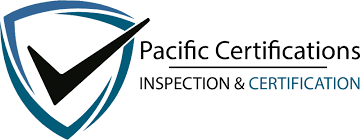ISO Certifications for Education and Training Institutes, Requirements and Benefits

Introduction
Education and training institutes operate in a trust-based and outcome-driven environment where learning quality, assessment integrity, learner safety, data protection, and institutional credibility directly influence student outcomes and stakeholder confidence. These institutes include academic institutions, professional training centers, corporate training providers, skill development organizations, online learning platforms, and blended learning institutes serving diverse learner groups.
As education becomes increasingly digital, global, and accountable, education and training institutes face rising expectations from students, employers, regulators, and funding bodies. Transparency in learning outcomes, protection of learner data, consistency in training delivery, and continuity of services are no longer optional. ISO certifications have therefore become an essential framework for education and training institutes to demonstrate structured governance, quality assurance, learner-centric systems, and long-term institutional sustainability.
Education earns trust when learning systems are consistent, transparent, and learner-focused.
Quick Summary
ISO certifications provide education and training institutes with internationally recognized frameworks to manage learning quality through ISO 21001, organizational consistency through ISO 9001, information security through ISO/IEC 27001, privacy protection through ISO/IEC 27701, occupational health and safety through ISO 45001, environmental responsibility through ISO 14001, IT-enabled learning reliability through ISO/IEC 20000-1, and academic continuity through ISO 22301. These certifications help institutes strengthen governance, protect learners, and enhance credibility with regulators, employers, and international partners.
For more information on how we can assist your education or training institute with ISO certifications, please contact us at [email protected].
Applicable ISO Standards for Education and Training Institutes
Below are the most relevant ISO standards applicable to education and training providers:
ISO 21001: Educational Organizations Management System (EOMS)
ISO 21001 is a sector-specific standard developed exclusively for educational organizations. It focuses on learner satisfaction, inclusive education, curriculum design, assessment integrity, trainer competence, feedback mechanisms, and continual improvement of learning outcomes, making it highly relevant for both academic and professional training institutes.
ISO 9001: Quality Management System (QMS)
ISO 9001 supports structured control of admissions, course planning, training delivery, evaluations, certification issuance, and improvement processes, ensuring consistency across programs, trainers, and delivery modes.
ISO/IEC 20000-1:2018 – IT Service Management
As digital learning platforms, LMS systems, online assessments, and virtual classrooms expand, ISO/IEC 20000-1 ensures reliable, controlled, and high-availability IT-based education services.
ISO 27001: Information Security Management System (ISMS)
Education institutes manage sensitive learner records, assessments, certifications, digital credentials, and online learning systems. These standards ensure secure data handling, privacy compliance, and protection against breaches.
ISO 45001:2018 – Occupational Health and Safety Management Systems
Classrooms, laboratories, workshops, and training facilities involve physical, ergonomic, and operational risks. ISO 45001 provides a systematic framework to manage hazards and protect learners and staff.
Click here to find out more applicable standards to your industry
What are the Requirements of ISO Certifications for Education and Training Institutes?
Education and training institutes seeking ISO certification must establish and maintain documented policies, procedures, and records aligned with the selected ISO standards. Key requirements include the following:
ISO 21001:2018 – Educational Organizations Management Systems
Define educational objectives aligned with learner and stakeholder needs
Control curriculum design, training delivery, and assessment processes
Establish learner feedback, evaluation, and improvement mechanisms
ISO 9001:2015 – Quality Management Systems
Establish a documented quality management system
Monitor training delivery and learning outcomes
Implement corrective and continual improvement actions
ISO/IEC 27001 & ISO/IEC 27701 – Information Security & Privacy
Identify learner data and information assets
Implement access controls and data protection measures
Manage privacy risks and compliance obligations
ISO 45001:2018 – Occupational Health and Safety
Identify classroom, workshop, and facility hazards
Implement safety procedures and emergency preparedness
Monitor incidents and corrective actions
ISO 22301:2019 – Business Continuity Management
Identify critical academic and assessment activities
Develop contingency plans for disruptions
Tip:Start by mapping your learner lifecycle—from enrollment and training delivery to assessments, certification, and alumni engagement—against ISO requirements to identify governance, safety, and data-handling gaps early.
For further information on how we can assist your education and training institute with ISO certifications, contact us at [email protected].
What are the Benefits of ISO Certifications for Education and Training Institutes?
ISO certifications are suitable for schools, colleges, professional training centers, corporate academies, online learning platforms, and skill development institutes. Key benefits include:
Improved consistency in training delivery and assessments, supporting learning outcomes.
Enhanced credibility with learners, employers, and regulators, strengthening trust.
Stronger protection of learner data and records, ensuring privacy compliance.
Safer learning environments for students and staff, reducing incidents.
Improved governance and audit readiness, supporting accreditation and funding.
Greater operational resilience, ensuring continuity of education services.
Education and training services are undergoing rapid transformation driven by digital learning, international student mobility, and workforce reskilling needs. Global workforce studies indicate that over 60% of employees will require reskilling or upskilling in the coming years, increasing reliance on structured and credible training providers. Governments and employers are therefore placing greater emphasis on quality assurance, learner protection, and outcome transparency.
Benchmarking across education providers shows that institutes implementing formal education and quality management systems achieve 15–30% improvements in learner satisfaction, assessment consistency, and employer acceptance of certifications. By 2030, ISO 21001-aligned governance is expected to become a baseline credibility indicator for education and training institutes seeking international partnerships, public funding, and long-term sustainability.
How Pacific Certifications Can Help
Pacific Certifications, accredited by ABIS, acts as an independent certification body for education and training institutes by conducting impartial audits against applicable ISO standards. Our role is to objectively assess whether documented management systems and educational practices conform to international ISO requirements, based strictly on verifiable evidence and institutional records.
We support education and training institutes through:
Independent certification audits conducted in accordance with ISO/IEC 17021
Practical assessment of real training, assessment, and governance processes
Clear audit reporting reflecting conformity status and certification decisions
Internationally recognized ISO certification upon successful compliance
Surveillance and recertification audits to maintain certification validity
If you need support with ISO certification for your education or training institute, contact us at [email protected] or +91-8595603096.
Author:Ashish
Ready to get ISO certified?
Contact Pacific Certifications to begin your certification journey today!
Suggested Certifications –
Read more: Pacific Blogs

